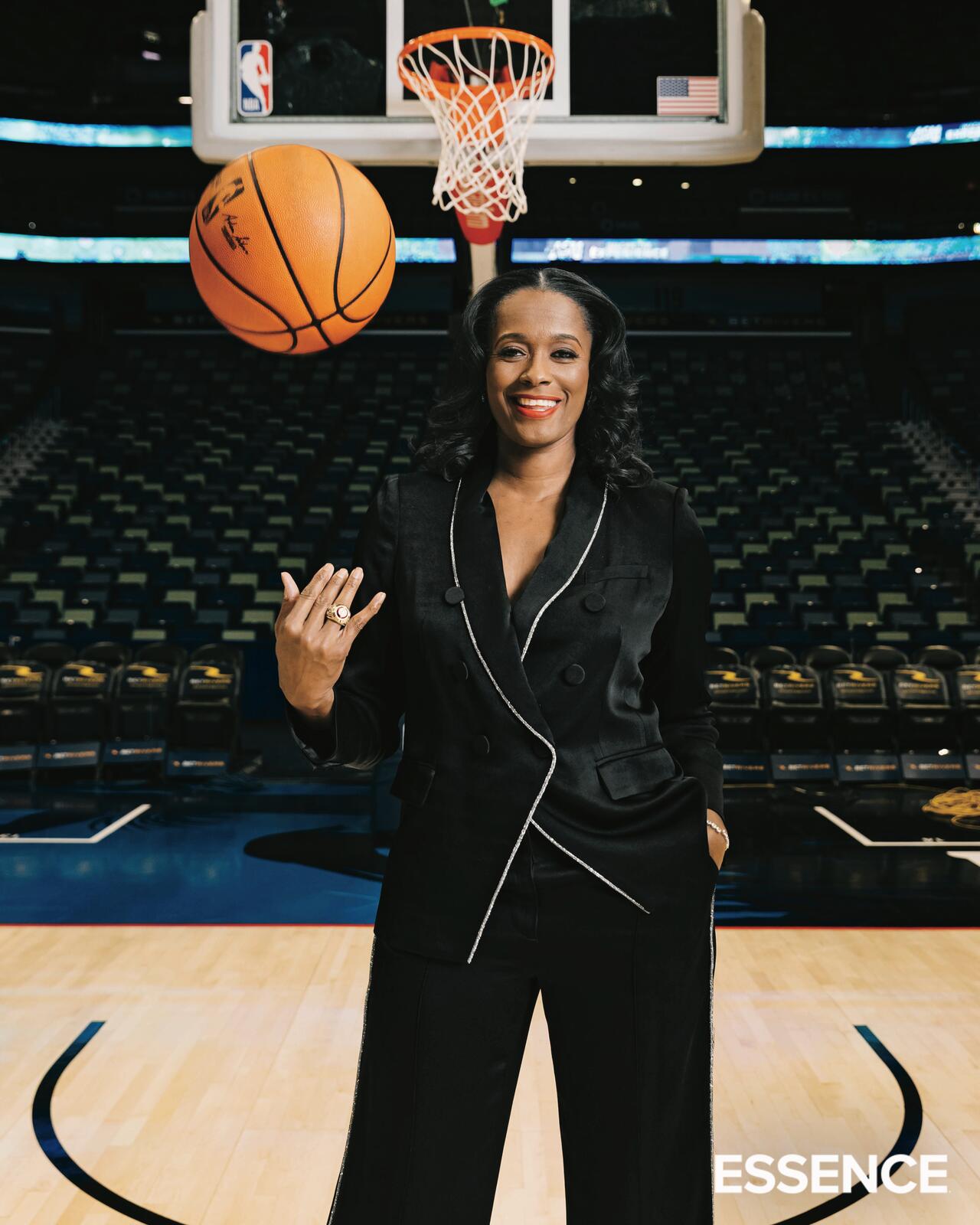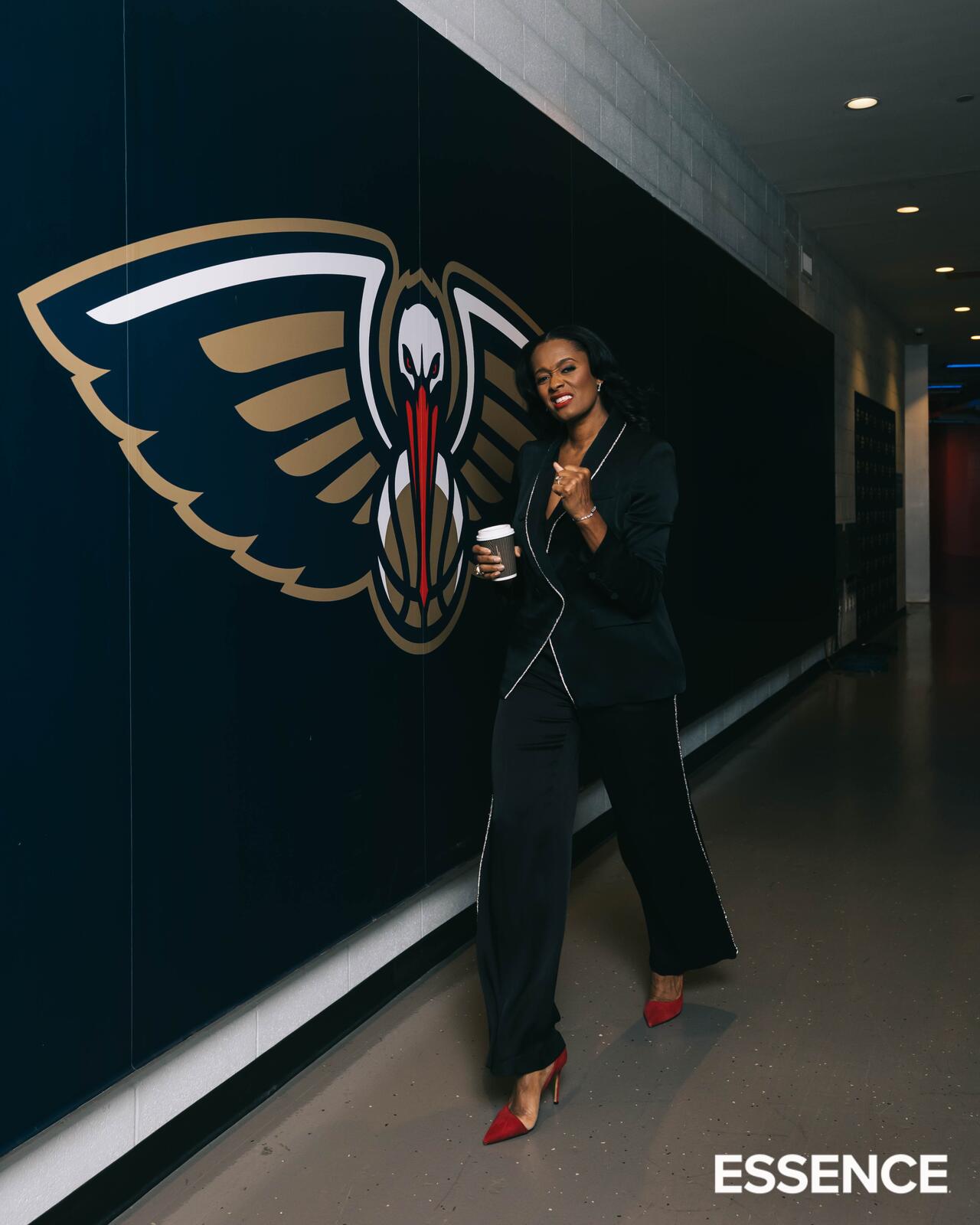What makes a legend? While some understand the word as referring to an admirable person who is at the center of many inspiring stories, Swin Cash just may be in a league—no pun intended—of her own.
With two NCAA championships at her alma mater University of Connecticut, two Olympic gold medals, three WNBA titles over the course of 15 seasons of blood, sweat and tears, four All-Star games in which she was twice chosen as the MVP, and an induction into the Naismith Memorial Basketball Hall of Fame, her record is exceptional—and that’s just on the court.
Now, let’s talk about her transition to the front office. After she was done playing, she became the Director of Franchise Development for the New York Liberty, and now serves as Vice President of Basketball Operations & Team Development for the New Orleans Pelicans. She’s also dedicated to leading the next generation of younger women in sports through her “She’s Got Time” Summit, among other community-led initiatives.

All things considered, this is the résumé of someone who should be—and is—considered “legendary.”
It’s clear that anything this basketball phenom touches turns to gold. As she’s one of the most influential basketball players—of any gender—of all time, you might think retirement from the hardwood would have impacted her “game.” But the Pennsylvania native is just getting her second wind. And in this quarter, it’s the playoffs, and she’s making the game-winning shot at the buzzer. Metaphorically speaking, of course.
It’s not easy breaking into the NBA executive world. Transitioning from the court to the front office doesn’t come without its challenges. But if there’s anything the game taught Cash, it’s never to let them see you sweat. “Starting off, I was used to having the ability to have an immediate impact on the game, from a physical standpoint,” she says. “As I took on my role in the front office at the New Orleans Pelicans, the athlete mindset expressed itself more through mental toughness, strategy and thought processes. That transition opened my eyes to the differences in regard to how I was able to lead.”
“There’s so much more work to be done,” she continues, “and I hope that in my current role, I am able to play a small part in inspiring other Black women to pursue similar opportunities in sports.”

Cash’s mental and physical fortitude allowed her to begin her playing career with two national championship teams at UConn—in 2000 and 2002. Those early career wins were some of her proudest achievements, though she’s clear that one victory is not larger or smaller than another.
“All of the championships I have won have a special place in my heart,” says Cash. “It’s never been about just winning to me. Rather, it was about the humble journey it takes to get there. Being able to represent our country multiple times—and understanding my background as a small, skinny little girl from McKeesport, Pennsylvania—gave me a chance to be an example for girls who look like me or were raised in the same type of environment as I was. It’s always important to me that I let them know they have the same opportunities in their lifetime, regardless of their humble beginnings.”
As a role model, Cash is using her power for good. In 2024, a summit like She’s Got Time is not only necessary but imperative. According to research by the Sport Integrity Global Alliance, women make up just 27 percent of executives in the 31 major international sports federations, with only three of them led by women. In addition, approximately 40 percent of women in the sports industry report having faced gender discrimination according to Women in Sport. But Cash is hopeful that things are looking up.
“I honestly believe that the future of sports is bright,” she says.
“I think that the recognition of women, particularly Black women in sports—and not just athletes—is increasing, and people are becoming more aware of what we are capable of achieving. We are starting to see more women step into those executive and leadership roles, but it is important that Black women continue to go after those roles as well. I am glad to see how far we’ve come, but there’s so much more work to be done. And I hope that in my current role, I am able to play a small part in inspiring other Black women to pursue those opportunities in sports.”
The mom—or should we say “super mom”—to 2-year-old Syer and 6-year-old Saint reflects on what advice she would give to a younger Swin Cash. “Remember that regardless of everything you go through, your faith, your foundation and your family will always help you get to the other side,” she says. “Oh, and don’t worry—you’ll rock those four-inch heels someday.”

